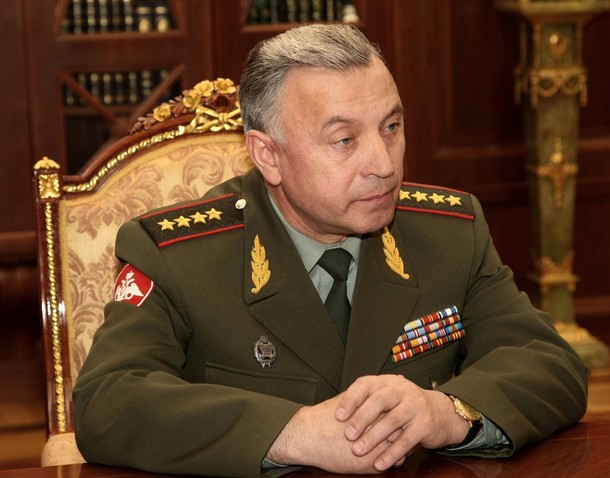
Russia’s Radical Military Reform in Progress
Publication: Eurasia Daily Monitor Volume: 5 Issue: 223
By:

According to Makarov, in recent local wars in Chechnya and Georgia, Russian army regiments could field no more than a reinforced battalion battle group, while each division, consisting of several regiments, could muster at best only several such battalion groups. The Soviet command structure was created in the 1960s and inherited by modern Russia; its organization "of armies, divisions, regiments, and battalions [is] too cumbersome and ineffective," Makarov said. Brigades smaller than divisions but twice as big as regiments will be created as a replacement. Instead of sending mixed task forces consisting of elements of different divisions and regiments into battle, the Russian military plan in the future is to use brigades as better balanced, organized, and efficient battlefield formations (Interfax, November 19).
Makarov admitted that only 20 percent of the units of the Russian armed forces—the so called "permanent readiness units"—were ready for action at present. The rest are the so-called "cadre divisions," consisting of officers and NCOs but no soldiers. Such units were created to be staffed fully by reservists and expand into combat formations during mass mobilization in a time of war; but such "cadre units" would be useless in local conflicts. According to Makarov, all Russian armed forces units in the future will be in "permanent readiness" (Interfax, November 19). It would seem that Russian generals have acknowledged that preparing for a mass mobilization of millions of reservists in today’s Russia is a dream that could never happen. If this reform plan were indeed carried out in a consequential way, it could significantly improve Russia’s military capabilities.
Makarov announced that the "central command structures of the Defense Ministry and General Staff have swollen to unseemly proportions and are not performing properly." He stated that the staffs of "central command structures of the Defense Ministry and General Staff" would be cut: "Of the present 21,500 officers and generals, 13,000 will fired" and "only those command structures that are indeed working will be retained" (Interfax, November 19). It is remarkable that Makarov, appointed last June to replace General Yuri Baluyevsky, became the chief of the General Staff at all (see EDM, June 5). When the chief states that the General Staff is inflated and ineffective, it is clear that drastic action is inevitable; but radical cuts in top military staff members cannot in itself improve performance. Makarov did not say to what extent the drastic cuts in staff personnel will be accompanied with significant changes in the structure of the Defense Ministry.
It is uncertain whether Moscow will follow the Western practice of building an essentially civilian Defense Ministry, moving significant administrative responsibilities out of the hands of the uniformed military. It is also a moot question whether an effective civilian Defense Ministry could establish civilian control over the military within the framework of the present authoritarian, totally undemocratic Russian state.
Makarov announced plans to rearm the reformed Russian military with new weapons: "In the coming three to five years we plan to replace 30 percent of old weapons with the newest ones and by 2018 to 2020, 80 to 100 percent" (Interfax, November 19). The promise sounds grand but remains vague: who will make the new weapons, what types will they be, and what will they cost? It is not clear that the Russian defense industry is up to the job.
Last week Duma Deputy Mikhail Musavatov quoted Makarov as announcing at a closed meeting of the Duma Defense Committee that Russia would buy unmanned intelligence-gathering drones from Israel. Makarov apparently said that Israeli-made drones had "performed well—on the Georgian side—during hostilities in Georgia in August." Communications and other modern technologies will be purchased abroad. Makarov admitted that the Russian defense industry could not make equipment of the same quality at present, "so we must buy foreign" (RIA-Novosti, November 13).
If the arrangement to buy Israeli drones indeed goes through, this will be the first time that Russia has officially obtained a major Western-made weapons system since the 1940s. Such a major change in defense procurement policy will, however, meet with opposition. Another Duma deputy, Mikhail Babich, announced the same day, "the Defense Committee decided that Russia would not buy Israeli drones but would develop its own" and that "Makarov agreed with that decision" (Interfax, November 13).
In the West parliament decides about the procurement of weapons, but in Russia the Duma simply rubber-stamps the decision. President Dmitry Medvedev announced this week, "A parliamentary republic would bring death to Russia" (Kommersant, November 19). If the Defense Ministry obtains approval from the Kremlin to go ahead and buy Israeli, it will be done.




